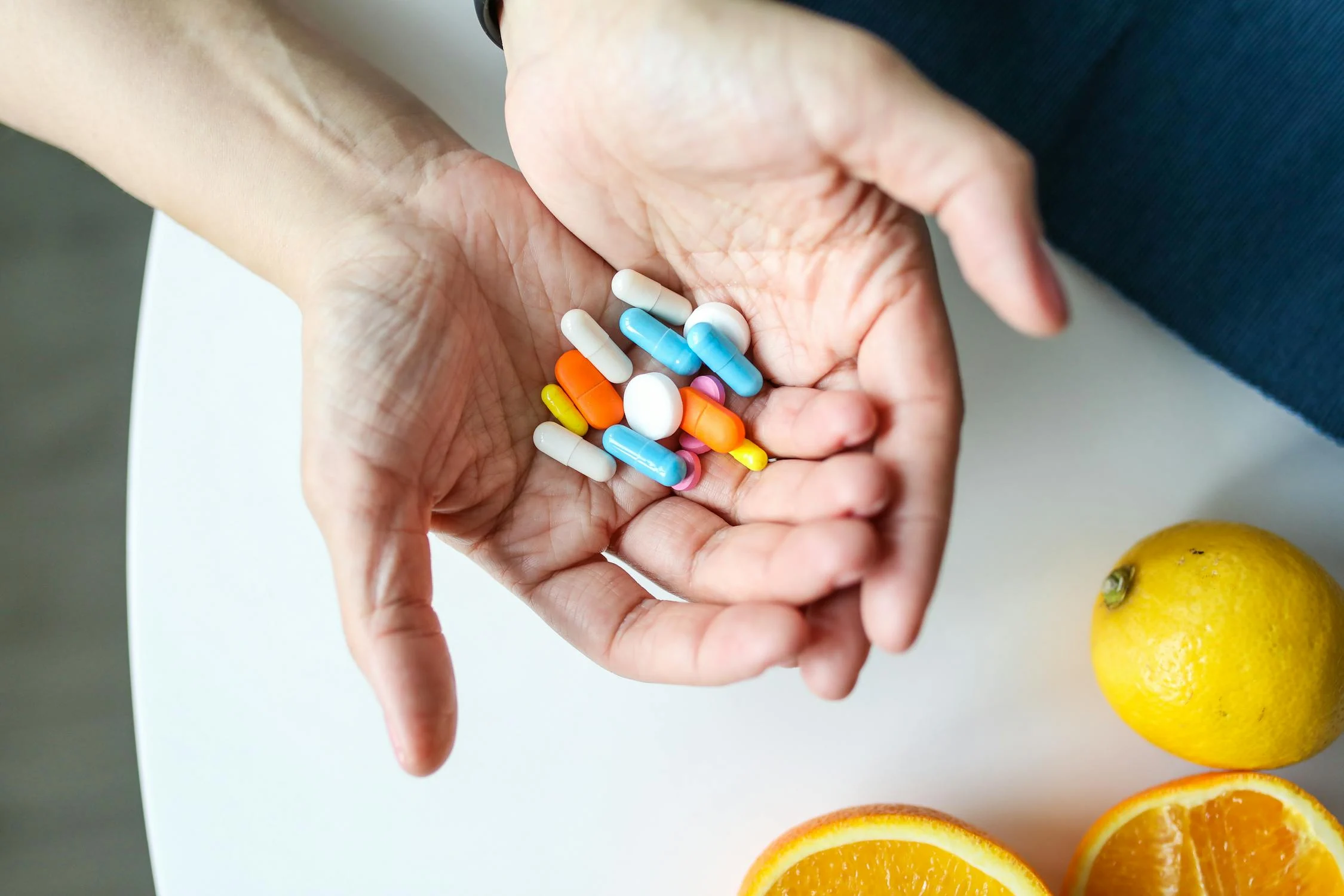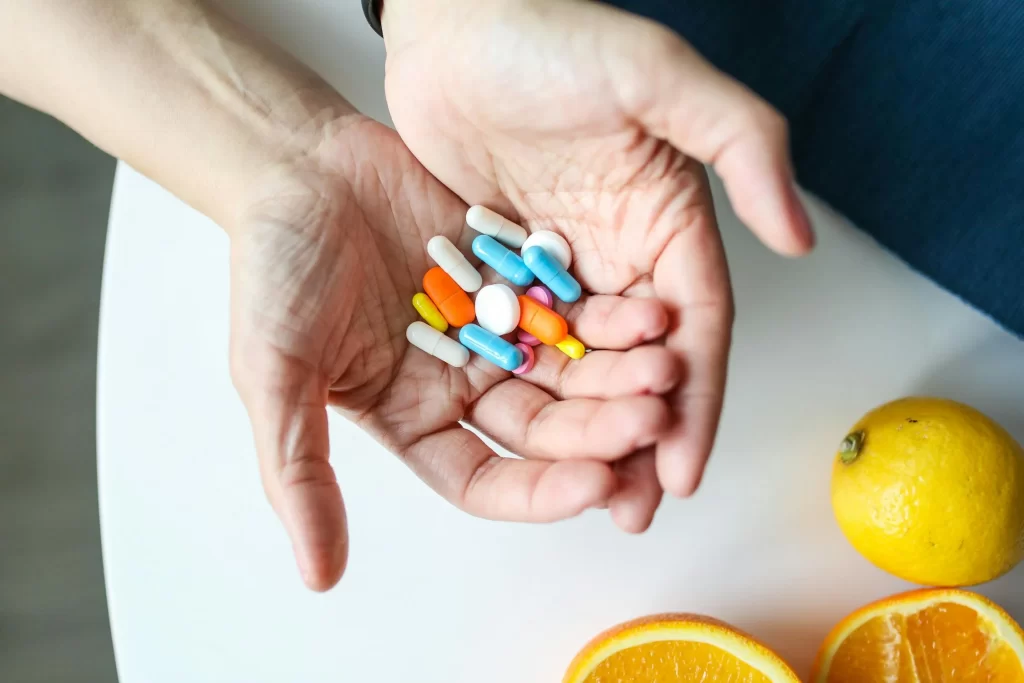Countless times, you’ve heard that brushing, flossing, and avoiding sugary food and drinks can help you avoid cavities. You follow these basic practices daily—but guess what? You still have cavities.
It can be frustrating when you’re diligent about oral care yet still face dental issues. But do you know who could be the culprit? Your medications.
Certain prescriptions and over-the-counter drugs can actually increase your risk of cavities despite your best care. Those meds can cause dry mouth by reducing saliva production. That can make your teeth more vulnerable to decay—shocking, isn’t it?
That said, let’s explore some of the common medications that could be affecting your pearly whites.
#1 High Blood Pressure Medications
Taking medicines to manage high blood pressure? They might increase your risk of cavities.
Medications like diuretics, beta-blockers, and ACE inhibitors are often prescribed to help keep high blood pressure under control. But these medications dry the mouth.
A study published in the International Journal of Pharmacy Practice found a link between certain antihypertensive drugs and dry mouth. Approximately 13% of patients taking ACE inhibitors complained of dry mouth.
These medicines cause vasoconstriction of the salivary glands, reducing the salivary flow rate.
Less saliva means your mouth doesn’t have its natural rinse cycle to wash away food particles and acids that can harm your enamel. Over time, reduced salivary production can lead to plaque buildup, which increases the risk of cavities.
#2 Antidepressants
When you feel anxious or depressed, you pop antidepressants.
Those pills do wonders for managing mood, but they can leave your mouth feeling drier than the Sahara. Dry mouth is a common side effect of antidepressants. Less saliva production creates a perfect breeding ground for cavity-causing bacteria.
Medications like SSRIs (selective serotonin reuptake inhibitors) and SNRIs (serotonin-norepinephrine reuptake inhibitors) are particularly notorious for reducing saliva flow. Thus, your teeth become more vulnerable to decay and gum disease.
#3 Opioid Addiction Treatment Drugs
More than 2.1 million Americans use opioids, reveals a publication by the National Library of Medicine.
Methadone and buprenorphine are two common medications used for the treatment of opioid use disorder. The FDA considers them to be safe and effective.
These medicines help people overcome opioid addiction, but they can have some side effects when it comes to oral health. One of the main issues is dry mouth.
Methadone, for instance, can reduce saliva flow and increase sugar cravings—that’s a double whammy for your teeth.
Even buprenorphine causes dry mouth. Orally dissolving medications containing buprenorphine are linked to severe dental problems, including cavities.
Buprenorphine, sold under the brand name of Suboxone, is a widely prescribed medication for opioid addiction. But it’s linked to severe dental issues.
Two British Columbians, Deborah Annis, 63, of Prince George, and Brandon Scholten, 31, of Langley, claim that Suboxone damaged their teeth. Annis suffered cavities, tooth decay, and cracked teeth. Scholten, on the other hand, suffered tooth erosion, dental nerve damage, and tooth decay.
Such allegations have put Suboxone at the center of controversy. Suboxone’s manufacturer, Indivior, is facing lawsuits from people who suffered dental problems. The lawsuits, TruLaw states, accuse the manufacturer of not warning them of the potential risks associated with the use of their drugs.
So far, there has been no court-approved settlement for Suboxone cases related to dental issues. Thus, determining the exact settlement amount is difficult. Experts, however, estimate that Suboxone lawsuit payout per person can range between $50,000 and $150,000.
#4 Antihistamines
If you suffer from allergies, you probably have a go-to antihistamine.
These medications—like Benadryl, Claritin, or Zyrtec—are great at drying up a runny nose and stopping those sneezes. But what they also do is dry up the saliva in your mouth.
Saliva is the natural defense of your mouth against cavities. It helps wash away food particles and neutralize acids that can erode enamel. When your mouth is dry, bacteria stick around longer, leading to plaque buildup and cavities.
Your antihistamine might make allergy season bearable, but it could be damaging your teeth.
All in all, meds are there to help you manage certain health conditions like high blood pressure and allergies. But they can quietly increase your risk of cavities.
Don’t worry—it’s not all doom and gloom. Drinking enough water, chewing sugar-free gum, and using fluoride toothpaste can help you protect your teeth while you’re on meds that put you at risk for cavities.
Keep in touch with your dentist, as well. They can help you keep your smile strong and bright, no matter what medications you’re on.




